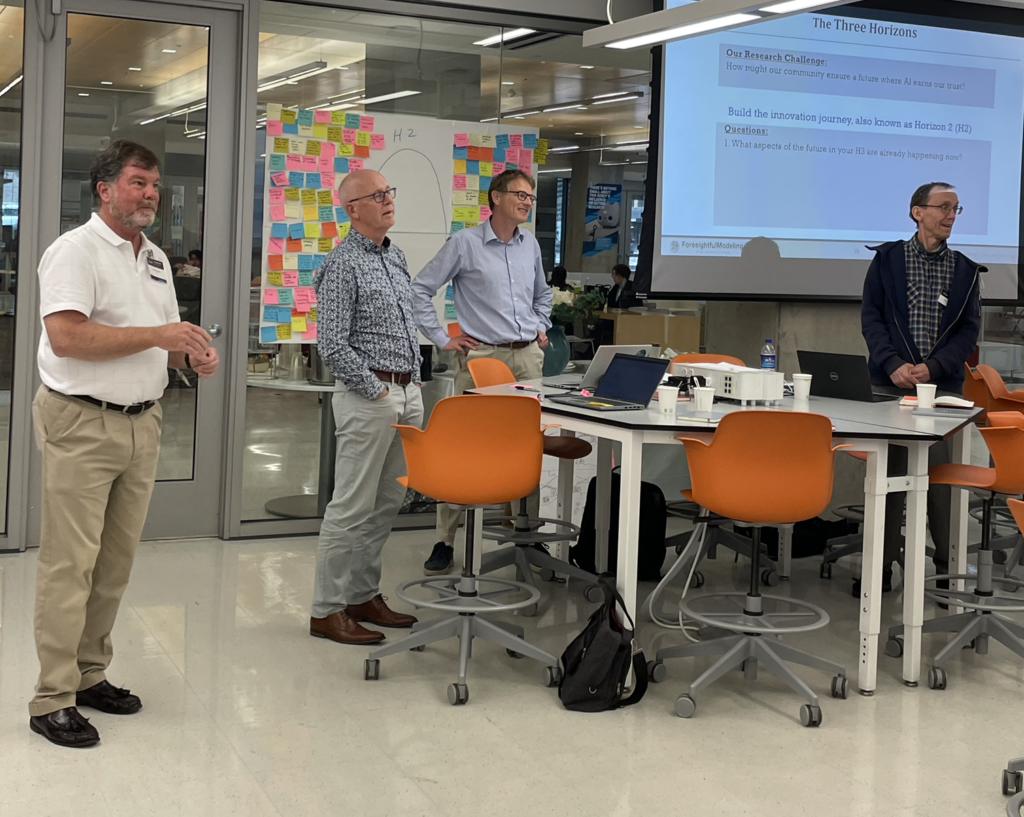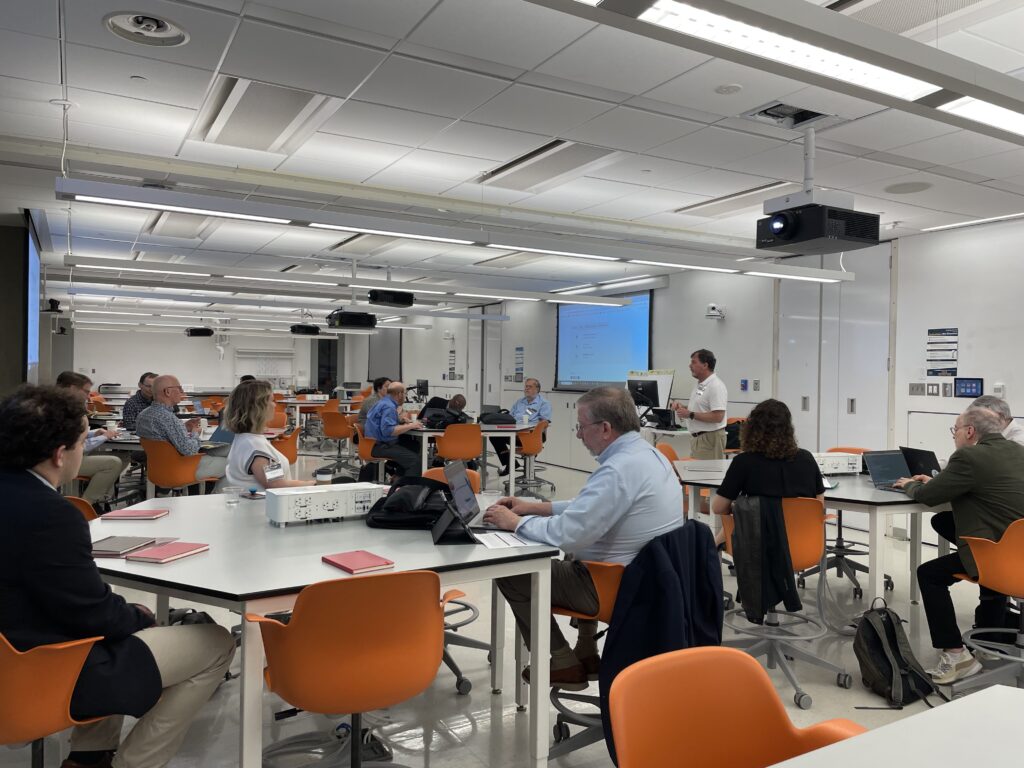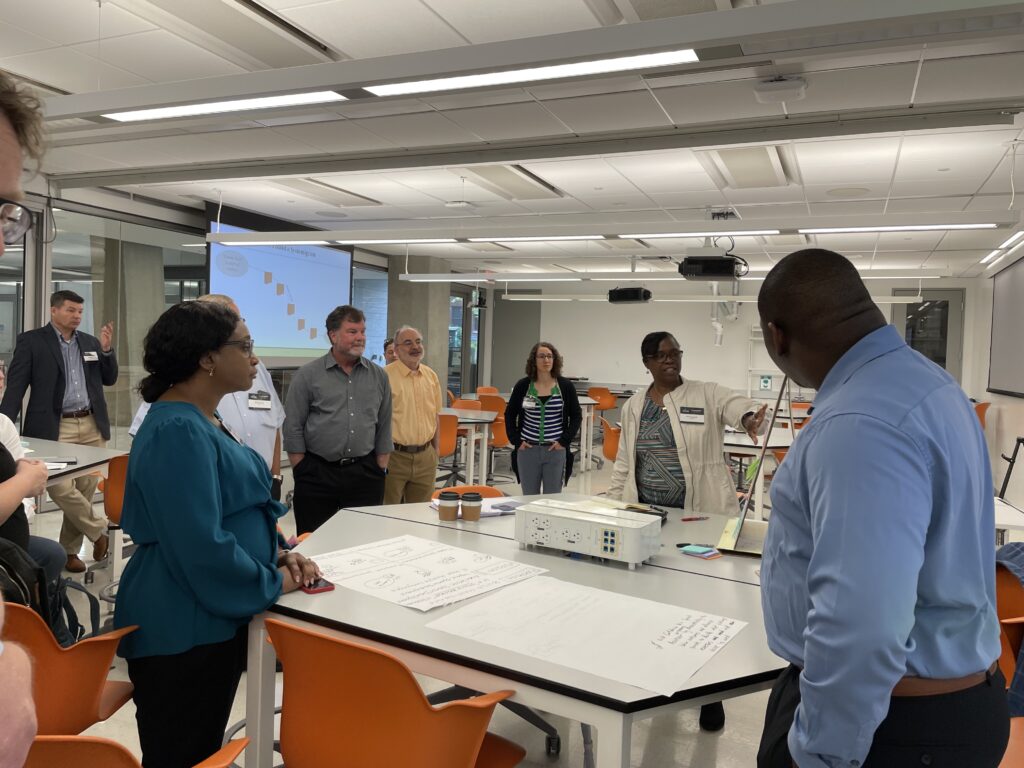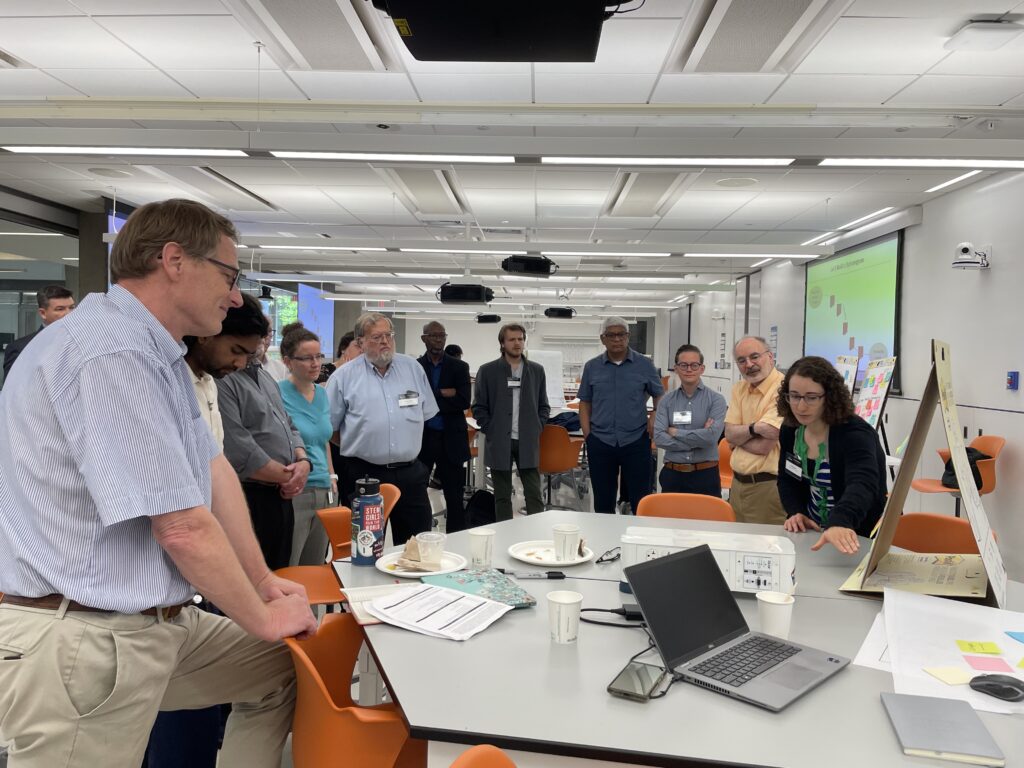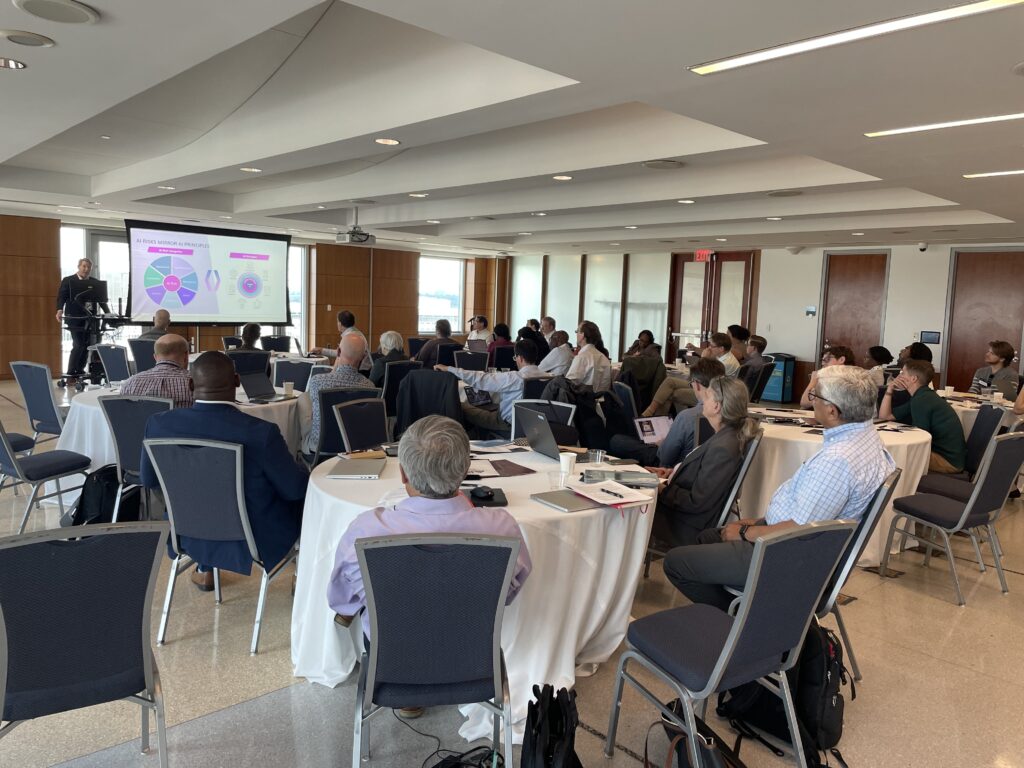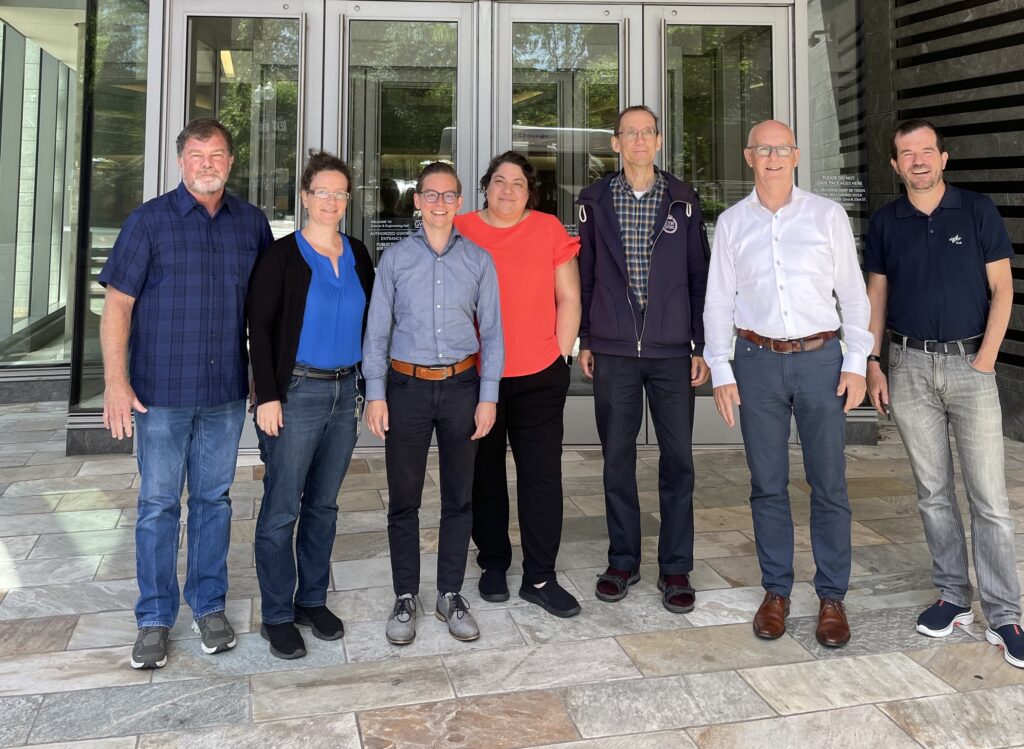The third annual Archimedes Initiative summer workshop, hosted by the Systems Engineering Research Center (SERC), gathered leaders from four prominent systems engineering organizations to discuss trustworthy AI, systems thinking, and other dynamic topics.
The SERC co-founded the Archimedes Initiative in 2022 with the German Aerospace Center (DLR) Institute of Systems Engineering for Future Mobility; the Netherlands Organization for Applied Scientific Research (TNO-ESI) Embedded Systems Innovation Center; and the Center for Trustworthy Edge Computing Systems and Applications (TECoSA) at the Royal Institute of Technology in Sweden. The international collaborators complement each other with a presence and expertise in different domains: DLR in automotive and maritime mobility, TNO-ESI in high-tech equipment, TECoSA in automobiles and aircraft, and the SERC in defense.
The four-day gathering at The George Washington University (GW), a SERC collaborator university, welcomed engineers from the partner organizations alongside guests from SERC sponsors in the Department of Defense and colleagues from the defense industry.
The first day showcased presentations from the Archimedes partners, each focusing on the topic of trustworthy AI. According to SERC Chief Scientist Zoe Szajnfarber, “As transformative AI becomes increasingly embedded in complex systems, engineers, policy makers and researchers must determine how to govern and evaluate this emerging technology while balancing its potential to transform society for good against the risks and harms that arise from novel use cases. There is a need to connect choices about data and design to strategies for the governance of AI systems and the data on which they are trained and deployed.”
Axel Hahn of DLR presented on “Trustworthy Vehicles: Let’s Learn from Live.” Freek Bomhof of TNO-ESI spoke on “Trustworthy AI as a Requirement in Applied Research Prototypes.” Martin Törngren of TECoSA discussed “Trustworthy AI Based Cyber-Physical Systems – the Good, the Bad and the Real Challenge.” Szajnfarber, who teaches at GW, concluded with “Opportunities for Systems Engineering in the Trustworthy AI.”
“We had four great days of presentations, discussions and tutorials about trust for AI-based, autonomous systems,” Hahn said. “We got a shared understanding about the role of trust and how to bring this to a new level. Archimedes is a winning format to bring forward systems engineering.”
The first day also featured keynote remarks from Martin Stanley, who is the Emerging Technology Branch Chief at the Cybersecurity and Infrastructure Security Agency and assigned to the National Institute of Standards and Technology (NIST), and Ron Keesing, who is the Senior Vice President for Technology Integration at Leidos. There were also technical talks from representatives of the NIST-National Science Foundation Trustworthy AI in Law and Society (TRAILS) Institute, which GW co-leads with the University of Maryland.
On the second and third days, SERC CTO Tom McDermott and researcher Dennis Folds led a workshop with a theme of “Trustworthy Automation of Urban Transportation Systems” designed to extract research ideas from all participants as well as provide training on applied systems thinking tools. The workshop was based on a professional development course titled “Applied Systems Thinking and Decision Making: Chief Engineers Seminar Series” that is a regular part of the systems engineering curriculum for the Federal Aviation Administration. The first day focused on defining the problems to be solved by this research, and the second day modeled the envisioned systems and the research strategy to achieve fully automated and trusted urban transportation.
“The attendees especially enjoyed the Three Horizons facilitation which envisioned the current and future worlds of trusted AI and autonomy and identified research and innovation paths to move toward the future,” McDermott said.
The fourth day involved a meeting among the Archimedes leadership. The group plans to collaborate on a workshop report and jointly write a systems engineering roadmap for research on Trustworthy AI and Autonomy (TAI&A).
DLR will host the workshop next summer. “The Archimedes Initiative,” Hahn said, “will meet in Oldenburg, Germany, for a workshop titled ‘Systems Engineering for the System Lifecycle – Rapid and Efficient System Evolution with Humans in the Loop.’ There is a need to evolve future systems in the field. DevOps cycle, continuous engineering, and interdisciplinary contributions require new approaches for systems engineering.”
Follow SERC on LinkedIn for updates on the Archimedes Initiative and systems engineering research.
